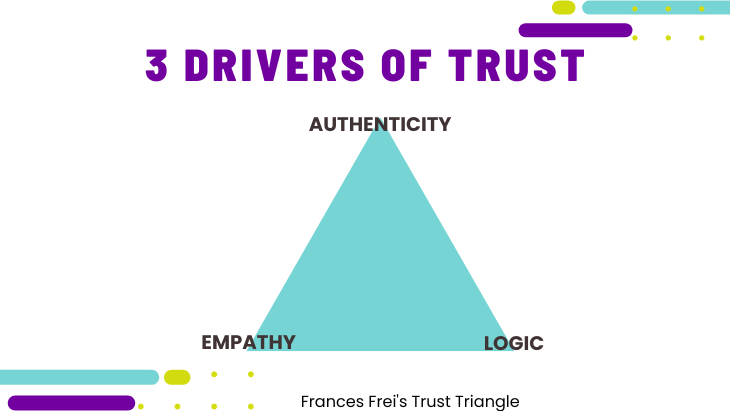The New Approach to Personal Branding That Changes Everything
Insights from Chris Do
In today's digital age, personal branding has become a buzzword that many people associate with marketing tricks and self-promotion. However, there's a new approach to personal branding that's changing the game entirely. This approach isn't about crafting a perfect image or manipulating your audience – it's about authenticity, self-discovery, and genuine connection.
Authenticity: The Heart of Personal Branding
The core of this new approach is authenticity. It's not about creating a polished persona that you think will appeal to others. Instead, it's about discovering who you truly are and sharing that with the world. As Chris Do, a prominent figure in the design and branding world, puts it,
"Personal branding for me is a process of discovering who you are and getting in touch with that."
This approach recognizes that we all carry some level of trauma or insecurity from our past experiences. By embracing our true selves, flaws and all, we can create a personal brand that resonates deeply with others who share similar experiences or values.
Building Trust Through Authenticity, Empathy, and Logic
A strong personal brand is built on trust.
According to the Harvard Business Review, trust is built through a combination of authenticity, empathy, and logic. Authenticity means being true to yourself and your values. Empathy involves genuinely caring about your audience's well-being. Logic ensures that your message and actions make sense and are consistent.
By focusing on these three elements, you can create a personal brand that not only attracts attention but also builds lasting relationships with your audience.
The 911 Content Strategy: Give Before You Ask
One practical strategy for building your personal brand is the 911 content ratio. This approach, advocated by Chris Do, suggests creating nine pieces of valuable content, one personal piece, and only then making one ask or offer. This ratio ensures that you're providing abundant value to your audience before asking for anything in return.
This strategy activates the principle of reciprocity. When you consistently provide value without expecting immediate returns, your audience is more likely to support you when you do make an ask.
Standing Out by Being Radically Different
In a world where everyone is trying to fit in, the key to a strong personal brand is to stand out. As Rory Sutherland, a legend in advertising, suggests, we need to focus more on intangible perceived value. This means finding what makes you unique and leaning into it.
Consider the example of "Mr. Beast" on YouTube. His brand is built on going to extremes – he doesn't just give away a car, he gives away a Lamborghini. By consistently delivering on this extreme promise, he's created a unique and memorable personal brand.
Creating Content for Someone, Not Everyone
One common mistake in personal branding is trying to appeal to everyone. Instead, the new approach advocates for creating content with a specific person in mind. This could be your ideal customer or the type of person you most want to work with.
To help with this, try using an empathy mapping exercise. Put yourself in your ideal customer's shoes and consider their thoughts, feelings, and motivations. This will help you create content that truly resonates with your target audience.
The Power of Nicknames and Two-Word Brands
Another powerful tool in personal branding is the use of nicknames or two-word brands. These can quickly communicate your unique value proposition and make you more memorable. For example, Chris Do's "loud introvert" brand immediately conveys his personality and approach.
When creating your own nickname or two-word brand, aim for something that's true, unique to you, memorable, and ideally, a bit vulnerable. This vulnerability can help create a stronger connection with your audience.
This exercise has been incredibly thought-provoking for me. I've always felt like an artist at heart, though I've often been constrained by various expectations throughout my life. At my core, I see myself as a 'creator,' and since my work now revolves around AI, 'AI Creator' feels like a fitting two-word brand.
I’m still reflecting on it—what’s your two-word brand?
Personal Branding as a Legacy
Finally, consider your personal brand as part of your legacy. In the age of AI, the content you create today could potentially live on long after you're gone, allowing future generations to connect with your ideas and personality.
This perspective can provide additional motivation for creating authentic, valuable content. It's not just about marketing or making sales – it's about leaving a meaningful impact on the world.
Different is Better Than Better
In the end, the new approach to personal branding can be summed up in one key idea:
different is better than better.
Instead of trying to be the best at what everyone else is doing, focus on being uniquely you.
Lean into what makes you different, share your authentic self, and provide genuine value to your audience.
Remember, as Chris Do says,
"We're all waiting for you."
The world is waiting for your unique voice and perspective. So don't be afraid to show up as your authentic self and start building your personal brand today.
Oscr is at your service!
We specialize in the research phase of your content creation tasks, helping you digest, organize, and curate your source materials effortlessly. By streamlining this part of your workflow, you gain more time to focus on crafting compelling hooks, telling unique stories, and growing your business.
Join our Discord community to share your feedback and request new features!
If you are interested to hear the full talk, check it out here: YouTube: The Futur Speech (September 30, 2024)




wonderful advice the world of tech needs. It aligns with my vision for humanity where abundance, community and love play a central role. AI can help us achieve that by freeing up our time & energy, allowing humans to freely share their expressions.